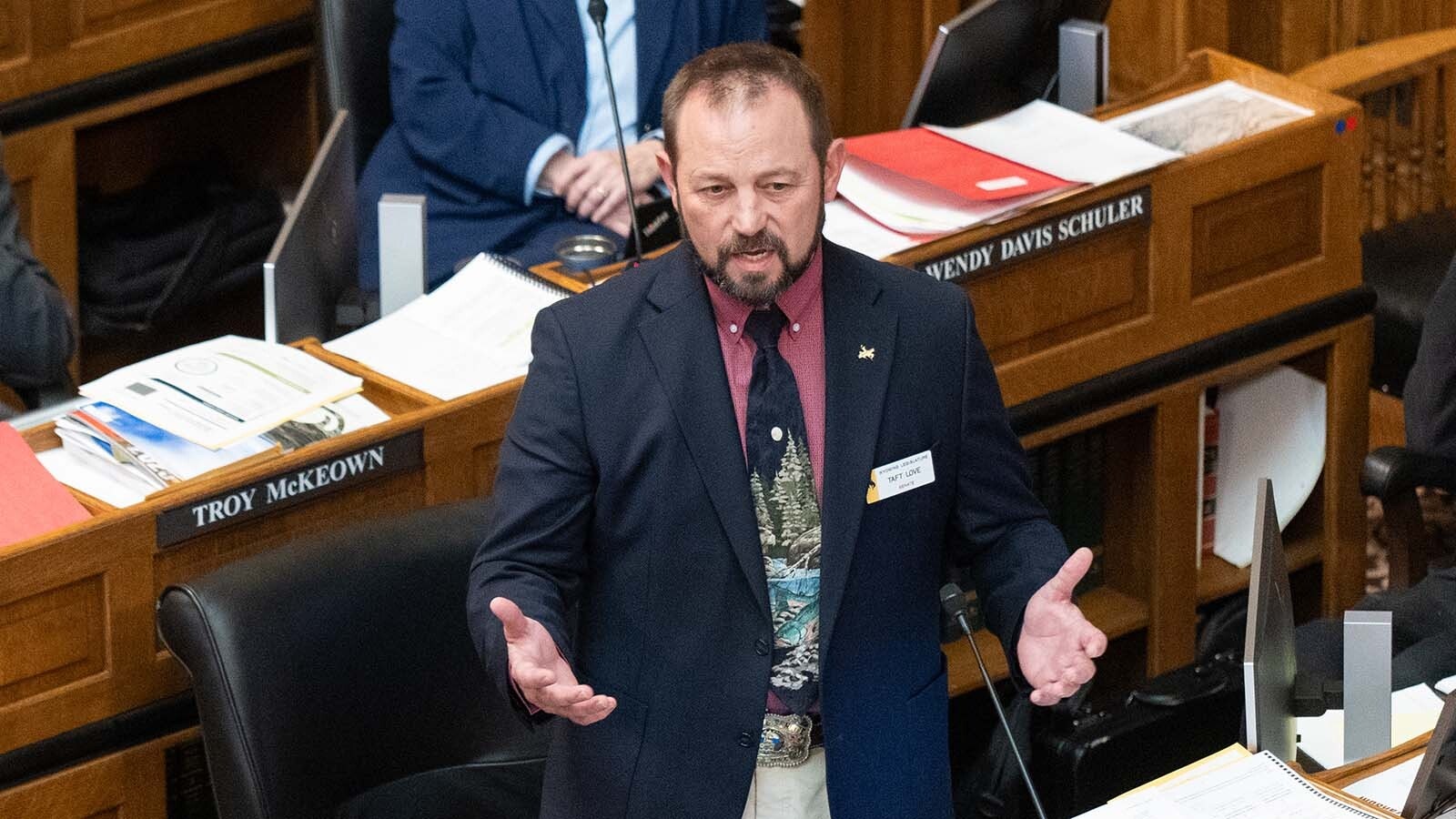The U.S. House of Representatives passed legislation introduced by Wyoming Republican Rep. Harriet Hageman on Tuesday that requires federal agencies analyze the economic impacts of reduced hydropower generation at Glen Canyon Dam.
It all comes down to a battle between invasive smallmouth bass and the native humpback chub downstream from the dam.
The bill, H.R.1001, requires the Bureau of Reclamation and the Western Area Power Administration (WAPA) to address the impacts that bypass flows at Glen Canyon Dam have had on the Upper Colorado River Basin Fund. Basically, bypassing the dam reduced the amount of power it can produce.
"The Biden administration wanted to rush to implement bypass flows to prevent smallmouth bass and other warmwater invasive nonnative fish from establishing below Glen Canyon Dam outlet works, which will negatively impact the dam’s power generation ability and cause a loss of revenue for the Basin Fund," Carly Miller, spokesperson for Rep. Hageman, explained Wednesday to Cowboy State Daily.
"The Basin Fund collects all revenues connected to the hydroelectric operations of dams that make up the Colorado River Storage Project and, according to Reclamation, the bypass experiments could have an impact of more than $200 million on the Basin Fund," added Miller. "Lost hydropower generation due to bypass requirements will need to be replaced with power purchased on the open market with funds from Upper Colorado River Basin Fund power revenues— or in other words, by customers.”
Hageman said that America’s water resources and energy-producing infrastructure like the dam also deserve protection and shouldn’t be sacrificed.
"Reducing hydropower generation is counterintuitive and my bill addresses that by keeping the Basin Fund intact as a short-term means ensuring operating, maintenance and other expenses are paid so that this dispatchable and reliable energy source remains viable for everyone dependent on this supply,” she said after the vote.

All About That Bass
The legislation responds to the Biden-Harris administration's Colorado River Long Term Experimental Management Plan Record of Decision (ROD) signed July 5, 2024.
The ROD mandates bypass flows at Glen Canyon Dam intended to combat predatory smallmouth bass that threaten the federally protected humpback chub by sending cooler water downstream.
The smallmouth vs. humpback chub showdown is attributed to warming water temperatures in Lake Powell and the Colorado River, according to the National Park Service. Climate change is giving smallmouth bass an edge in this battle as the infamously predatory species devours more and more humpback chub, the agency says.
Smallmouth bass are known to “prey on the much younger humpback chub juveniles, creating a ‘generational’ problem with mature humpback chub getting older over time with a lot fewer young chubs coming up behind them,” according to the conservation group American Rivers, which worries that without bypass flows, there’s the threat of smallmouth “decimating the population of chub.”
Bypass flows aimed at protecting the chub reduce electricity production because water is diverted around hydropower generators. The lost power must be replaced with more expensive electricity purchased on the open market, especially during summer peak demand, according to Hageman. These purchases draw from the Basin Fund, which is financed by power revenues from customers.
Cowboy State Daily spoke to staff at the Bureau of Reclamation, who said they did not know about Hageman’s legislation.
A spokesperson for WAPA, which falls under the Department of Energy, told CSD that it has operated under a blanket gag order since Jan. 20 and cannot speak to the media.
Similar Senate Effort
The House legislation follows similar efforts in the Senate. On March 7, U.S. Senators Mike Lee, R-Utah, Chairman of the Senate Committee on Energy and Natural Resources, and John Curtis, R-Utah, introduced the Basin Fund Preservation Act.
That legislation requires federal agencies to sign an agreement that both sustains sufficient hydropower generation and supports conservation efforts under the Endangered Species Act. The bill aspires to protect communities across Utah, Wyoming, Colorado, New Mexico, Arizona, Nevada and Nebraska from higher energy costs resulting from restricted hydropower generation, according to its sponsors.
The Senate passed an earlier version of this bill by unanimous consent in December.
"The Basin Fund Preservation Act will ensure that not-for-profit electric utility customers have a seat at the table in the establishment of an action plan to address the impacts of Reclamation's decision to bypass hydropower generators," said American Public Power Association spokesperson Desmarie Waterhouse in support of the Senate bill.
Hageman's Hydropower Advocacy
Hageman’s success in passing her "Upper Colorado River Basin Fund" bill comes weeks after she chaired an April hearing of the U.S. House Water, Wildlife and Fisheries Subcommittee focused on hydropower, which she called "the backbone of our region's energy future."
During that hearing, Jim Webb, CEO of Lower Valley Energy in Afton, Wyoming, testified about hydropower's importance to his utility.
"As we integrate more variable resources like wind and solar, while demand continues to soar for electricity, hydropower's role as a flexible backbone becomes even more critical," Webb said. "Hydro plants can quickly ramp up or down, provide critical grid services like frequency regulation and have black start capabilities, meaning that they can restore power independently after a major outage."
In closing the April hearing, Hageman emphasized the importance of water infrastructure, stating, "Our rivers, lakes, reservoirs, dams, canals, laterals, siphons, head gates and tunnels are key to ensuring that we have an adequate water supply to meet the demands and needs of our citizens, ag producers, energy producers, small business owners and manufacturers that operate across our state."
David Madison can be reached at david@cowboystatedaily.com.







